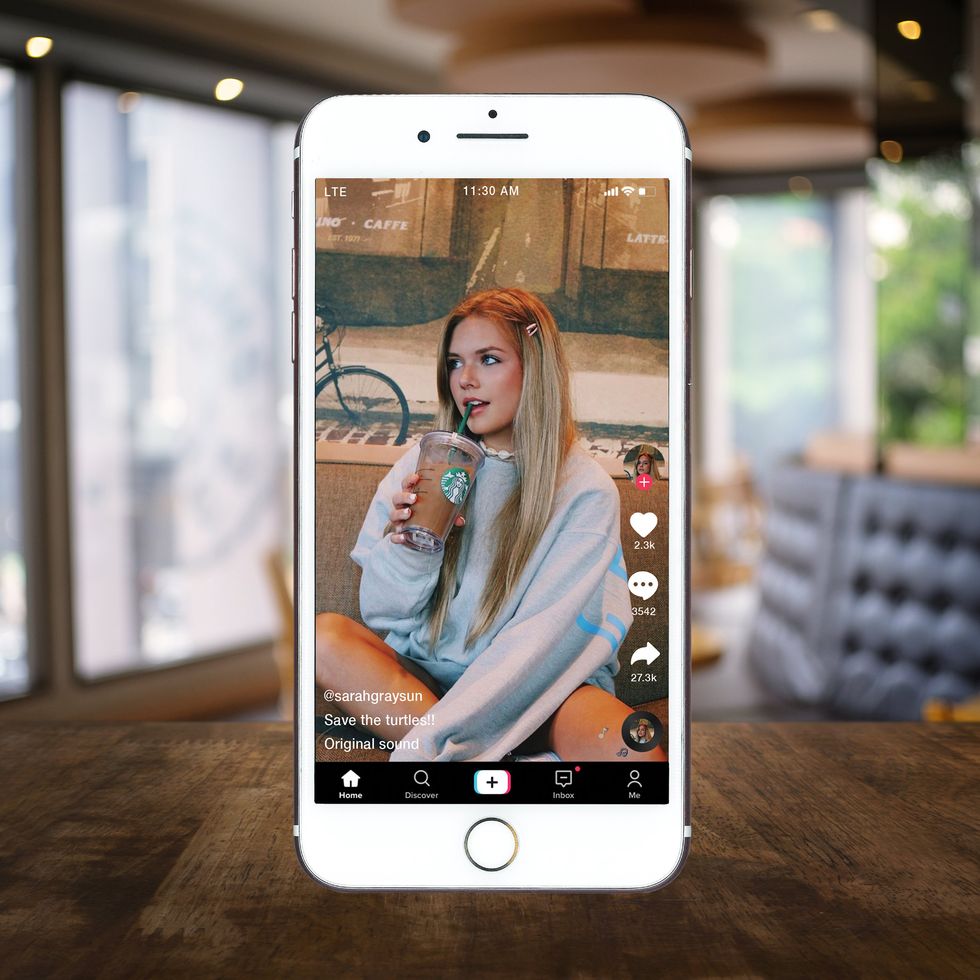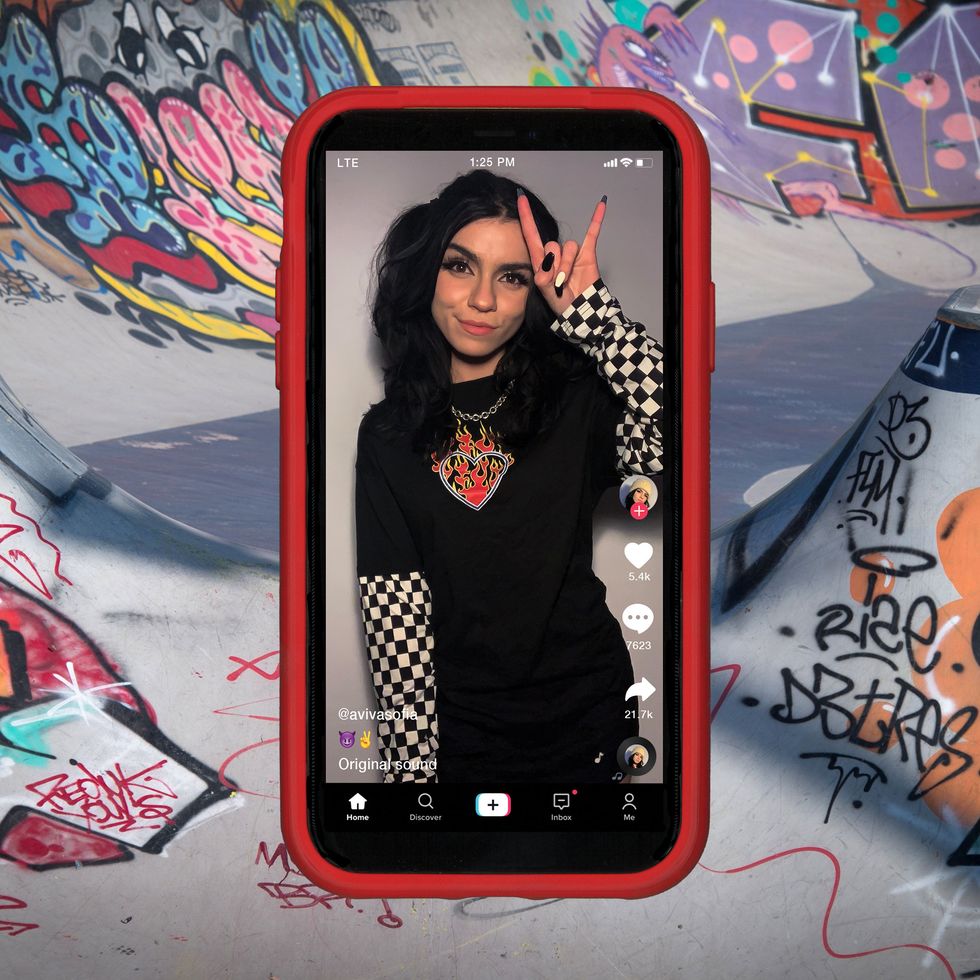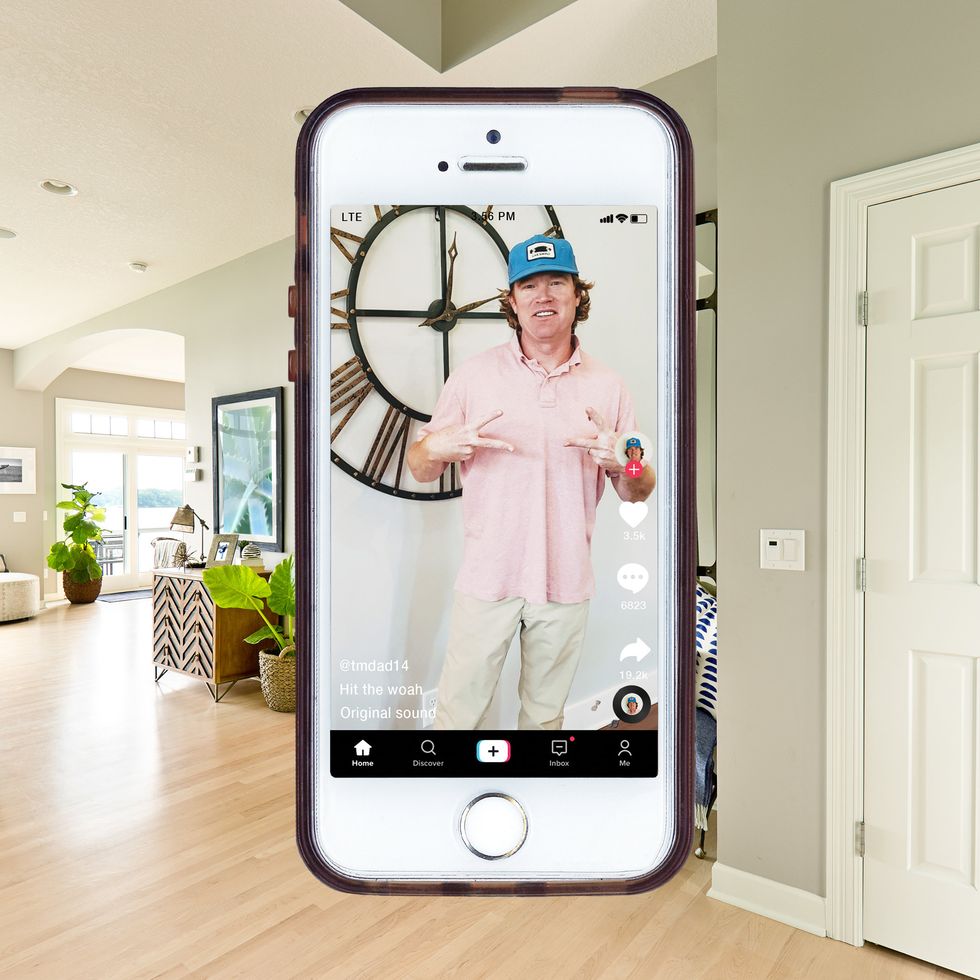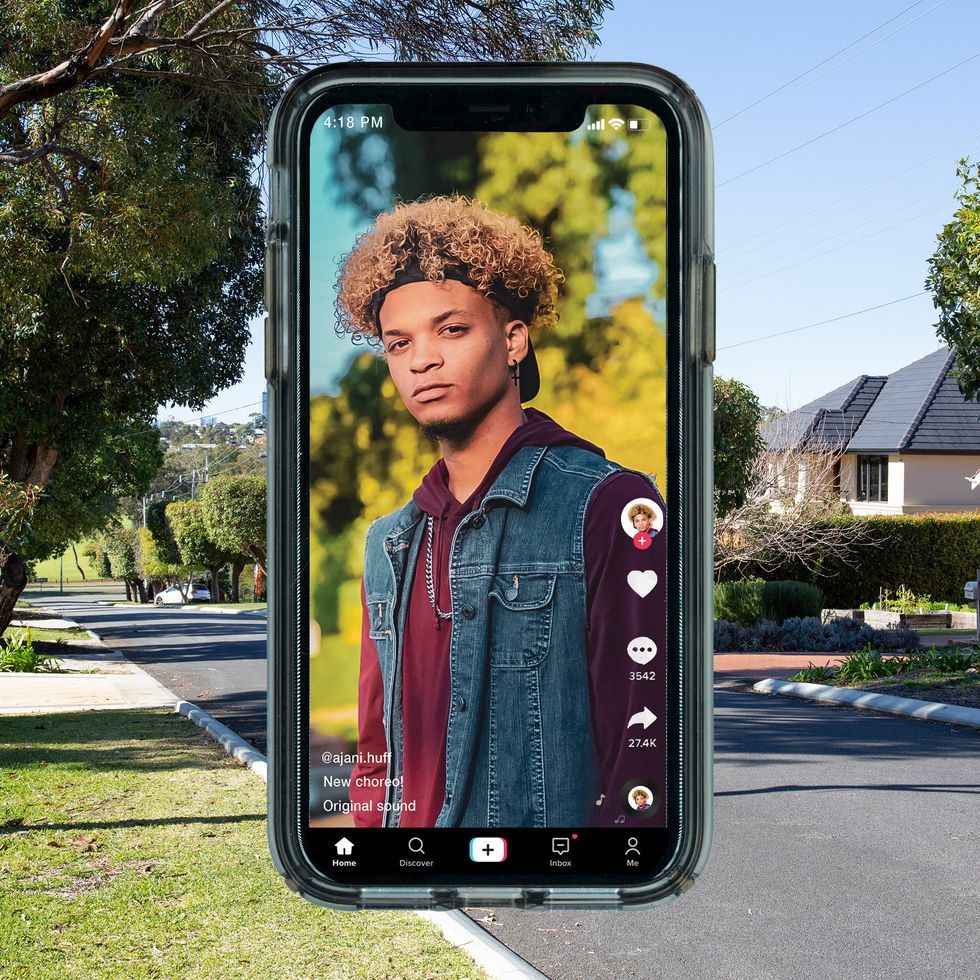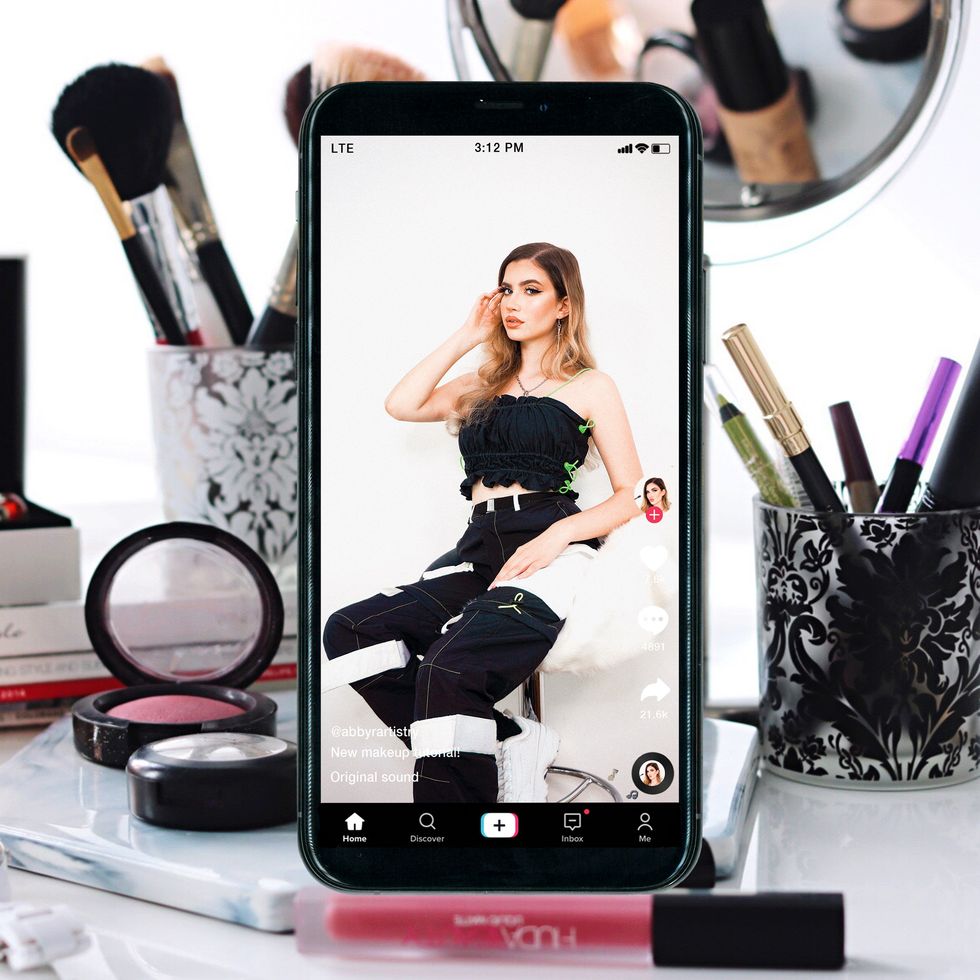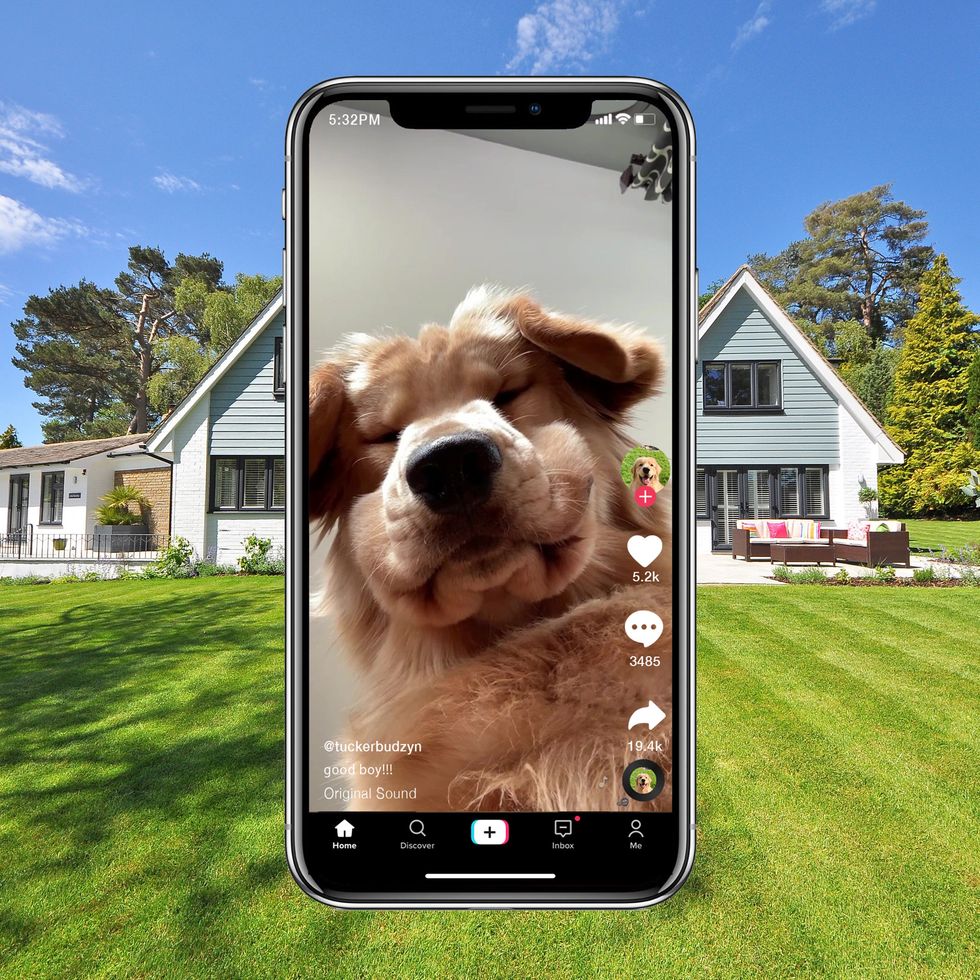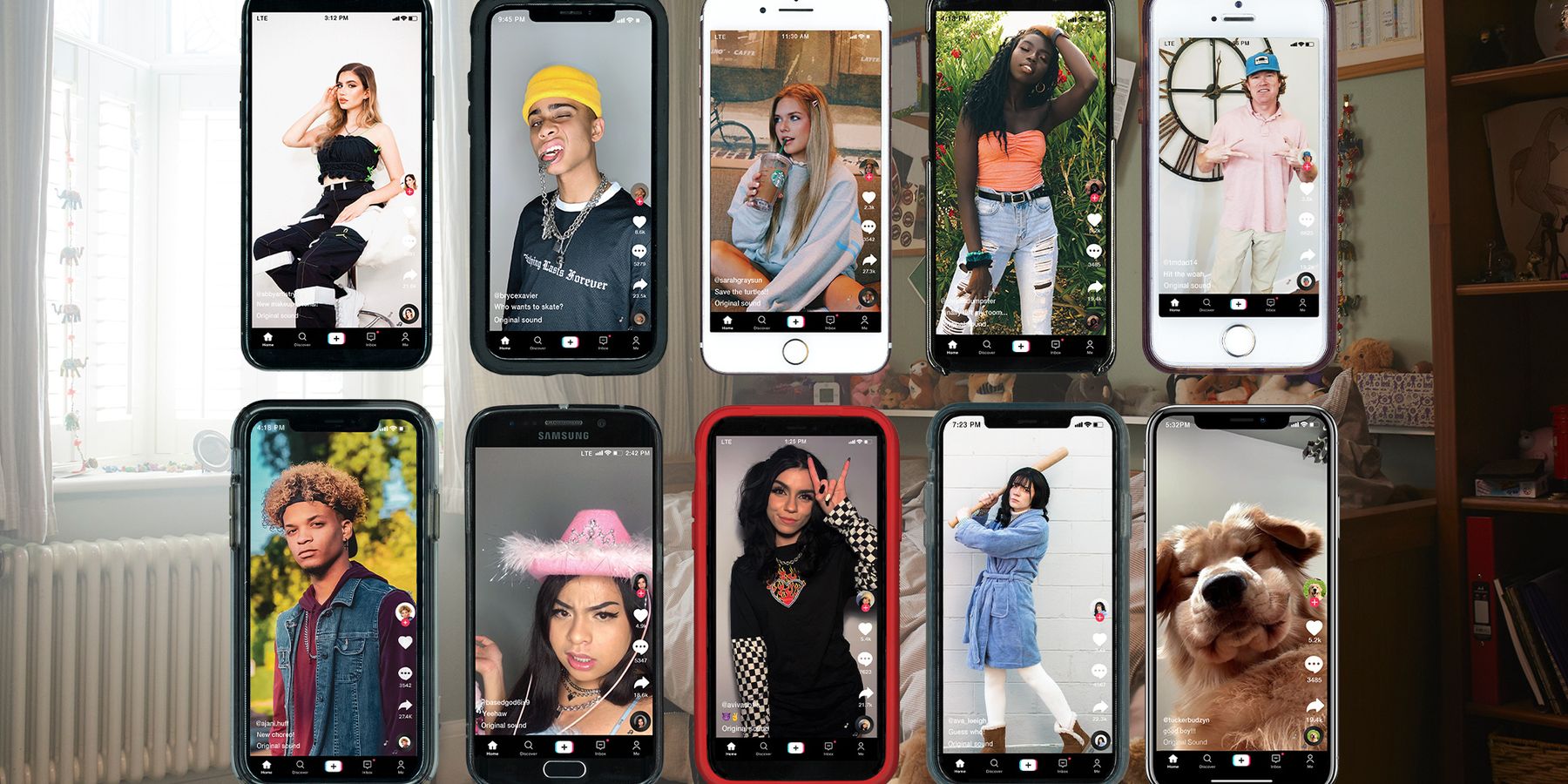
Break the Internet ®
The 'For You' Age: How TikTok Conquered 2019
by Brendan Wetmore & Charlotte Spritz
06 December 2019

The rhetoric around TikTok — a complex social platform often mischaracterized as merely a lip-syncing app — tends toward amusement, confusion, and concern. Users' AI-enabled "For You" homepages are Pandora's boxes of pop culture, from "Old Town Road" challenges and Spiderman cosplays to outsider art-like skits and Insane Clown Posse sing-alongs, all made hazy by clouds of Juul smoke.
While think pieces and trend roundups litter the homepages of news outlets attempting to catch up to speed with TikTok and its clusters of sub-communities, for Gen Z, nothing about the app is exceptionally bewildering. Scrolling between videos of pugs eating peanut butter, high schoolers recreating scenes from Heathers and baby boomers dancing to Playboi Carti feels about right for a generation of first-time voters facing a reality TV star at the top of their election ballots.
Related | Ashnikko Is Ready for All of It
TikTok launched in 2016 under its Chinese parent company ByteDance. An international expansion began almost immediately, aided by the company's 2017 acquisition of musical.ly, pioneer of the lip-syncing app format. Its Western popularity is unusual in the Silicon Valley age dominated by Instagram, Facebook, and Twitter, all of which are censored in China. TikTok is that rare digital entity with a truly worldwide audience, although its Chinese iteration, Douyin, still operates behind the country's "Great Firewall" internet regulations.
It's sometimes speculated that those international users are being censored, too. It was widely reported last week that teenage TikTok user Feroza Aziz had her account suspended after openly criticizing the Chinese government's mistreatment of Uighur Muslims, though TikTok has strongly denied this claim.
TikTok might be considered "post-Vine" by those nostalgic for the now-defunct video sharing network's quick fix bites of laughter, but actual users will find the differences between the two increasingly stark. Talking about Vine in 2019 is now approaching "OK Boomer" levels of blasé. Either you get on the TikTok train, or you might as well still be on Facebook.
Compared to Vine and other video platforms, followings are built a little differently on TikTok, with virality occurring in community-based spurts. A large majority of creators gather around identifiers and trends that have practically become search engine-optimized cliques categorized by activity, interest, look and sound. Take the "VSCO girl," for example — a young woman who wears puka shell necklaces, speaks in gay colloquialisms, and fights against climate justice by carrying a reusable water bottle. Named after the popular photo editing app's user base of the same name, the term has become hyper-prevalent on TikTok, as it has on YouTube, Instagram, Twitter and even IRL.
In an example of how self-deprecation has practically become the highest art form on TikTok, second only to irony, many young people identify with the style (or at least view it as a cultural touchstone) despite its negative connotations. Even if you're donning your Birkenstocks and nursing a Hydro Flask, if you scroll past someone imitating a VSCO girl, you'll laugh.
The same vein of relatability runs through an array of other TikTok cliques that rally around trends: dancers, boomers, e-girls and e-boys, comedians, POV-ers, makeup gurus and, most popularly, cosplayers. While some of the communities existed long before its invention, they have, at the very least, started experimenting with TikTok.
What's most fascinating about these trends is how they're migrating off the app and into the real world. TikTok dance videos are now dictating what songs become popular, helping bolster real-time chart positions for 2019's hottest songs, like Lizzo's "Truth Hurts," which technically came out two years ago. Cringe-inducing content from unlikely users is becoming office water cooler talk; cosplayers have a more streamlined way to display their creations and connect with likeminded fans ahead of conventions and meet-ups.
Related | Why China Permanently Banned Zedd
The way TikTok democratizes influence is refreshing. The home ("For You") page is an assembly of AI-curated videos from both strangers and people that you follow, and it's gloriously decentralized compared to most other platforms. It doesn't feel corporate yet, either. While the odd sponsored video appears occasionally, there isn't a clear-cut way for creators to monetize their content directly.
For now, TikTok has only a loose grip on any individual creator's output. Content is still being filtered, yes, but it's being spread more liberally than on any other social network. In this sense — and in the context of proliferating bots, fake news and social media's general decay —TikTok is visually, audibly and innately the most human platform we have.
Related | Lizzo Is the Queen of TikTok
To better understand TikTok, its trends and its sub-communities, PAPER put together a crash course guide for those unfamiliar with the app, complete with insights from some of its most prolific creators.
Click through the slideshow, below, to read how cutting-edge influencers are harnessing the platform's powers.
Image via Sirijit Jongcharoenkulchai
Hallmarks of the VSCO genre, which takes its name from the photo-editing app popularized by teenage girls on Instagram, include teens sporting scrunchies, puka shell necklaces and Hydro Flasks. VSCO girls talk about environmental causes like saving the turtles and pepper their speech with sound bites borrowed from the LGBTQ and stan communities like "And I oop!" and "Sksksksk." One of the most referenced and duplicated styles on the internet, and even increasingly relevant outside of social media, VSCO is often meme'd as a young womanwho's basic but nevertheless possesses a certain popularity and trendiness.
When did you join TikTok?
I started TikTok right when the app opened.
What's your favorite audio or trend?
My favorite trend was doing the clown makeup to the Beetlejuice songs!
What's your best performing TikTok?
My best performing TikTok was when I went to Universal and did a Harry Potter- style video in front of the Hogwarts castle.
How would you describe your genre of TikTok?
I would describe my genre as a mix between beauty, styling and comedy.
How has being TikTok-famous changed your life?
Being TikTok-famous has changed my life because I have gotten to meet so many people that have left a huge impact on my life, and I have made friends that enjoy the same stuff as me. Just knowing that you have left a positive impact on the people that watch your videos is truly amazing, and I wouldn't trade what I do for anything.
